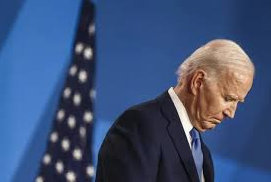
Thomas Tuchel begins his tenure with manageable opponents as European nations learn their qualifying group fate
England will face Serbia, Albania, Latvia and Andorra in Group K for the 2026 World Cup qualifying campaign, as Thomas Tuchel prepares to officially start his role as head coach on 1 January. Tuchel will take encouragement from England’s strong record against these opponents, having never lost to any of them in previous meetings.
Scotland have been placed in Group C alongside Greece, Belarus and the loser of the Nations League quarter-final clash between Portugal and Denmark. Additionally, Steve Clarke’s team will meet Greece again in a Nations League promotion-relegation play-off in March.
Meanwhile, the Republic of Ireland face a challenging Group F, which includes Hungary, Armenia and the winner of the Portugal versus Denmark Nations League match.
Wales are in Group J with Belgium, North Macedonia, Kazakhstan and Liechtenstein as they aim for their second successive World Cup qualification. The team famously overcame Belgium 3-1 in the 2016 Euros quarter-final and will look to repeat their success in their upcoming campaign.
Northern Ireland, under Michael O’Neill, will aim to qualify for their first major tournament since 1986, competing against Germany or Italy’s Nations League quarter-final winner, alongside Slovakia and Luxembourg in Group A.
England have previously met Serbia only once in their history as a unified nation, at this year’s Euros, where Jude Bellingham’s decisive goal secured a group stage victory. Their record against Albania is unblemished, with six consecutive World Cup qualifying victories. Latvia will be a new opponent for England, while Andorra previously faced England in the 2022 World Cup qualifying group, with England securing dominant wins.
Looking ahead to other European groups, Spain could face Turkey, Georgia and Bulgaria in Group E should they defeat the Netherlands in their Nations League match. If they fail, they will instead meet Poland, Finland, Lithuania and Malta in Group G.
Germany or Italy, depending on the outcome of their Nations League quarter-final, will feature in Group A, while the losing side will join Norway, Israel, Estonia and Moldova in Group I. France could face Ukraine, Iceland and Azerbaijan in Group D, depending on their performance against Croatia in the Nations League. Alternatively, they would face Czechia, Montenegro, Faroe Islands and Gibraltar in Group L should they fall short.
Two other groups are largely set, with Switzerland drawn with Sweden, Slovenia and Kosovo in Group B. Austria, under Ralf Rangnick, will meet Romania, Bosnia and Herzegovina, Cyprus and San Marino in Group H.
A total of 16 European nations will qualify for the 2026 finals, which will feature 48 teams for the first time. Qualification will start in March for groups of five teams and in September for groups of four, once the Nations League is completed.
The winners of each group will secure automatic qualification, while runners-up will proceed to playoffs alongside the four best-ranked Nations League group winners that did not finish in their respective top two.

















